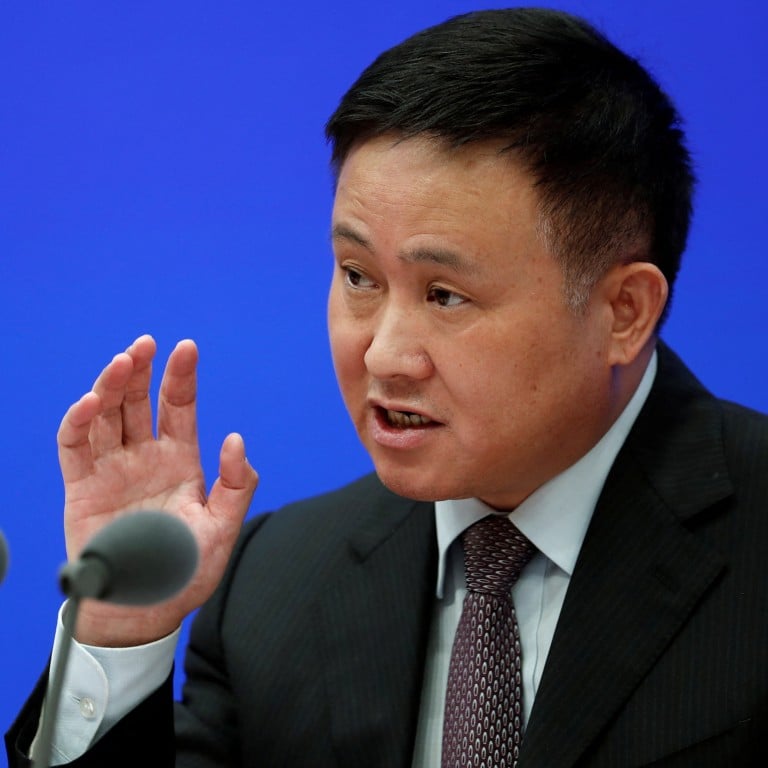
China’s yuan to ‘show good investment value’ as economy recovers, US interest rate gap narrows
- Central bank deputy governor Pan Gongsheng said that as China’s economy recovers, the yuan’s role as a safe-haven asset will become more prominent
- People’s Bank of China governor Yi Gang also said China would actively take part in the Group of 20 (G20) debt relief programme
China’s central bank expects interest rate differentials with the United States to stabilise and the yuan to attract international investors as an asset as well as a currency for trade, financing and hedging, according to its deputy governor.
Pan Gongsheng, who is also the director of the State Administration of Foreign Exchange, said on Friday ahead of the start of the “two sessions” annual parliamentary meetings this weekend that as China’s economy recovers, the yuan’s role as a safe-haven asset will become more prominent.
“At present, the valuation of the domestic stock market is relatively low, and the interest rate difference between China and the United States is stable and convergent, so yuan assets will show good investment value,” Pang told a press conference in Beijing.
By the end of last year, the balance of domestic yuan assets held by overseas entities stood at 9.6 trillion yuan (US$1.4 trillion), representing a 120 per cent increase compared with 2017. This balance included 3.2 trillion yuan of stocks and 3.5 trillion yuan of bonds, according to Pan.
In 2021, however, foreign investors held a total of 10.83 trillion yuan of yuan-denominated assets, according to data from the People’s Bank of China (PBOC).
Some 4.09 trillion yuan was invested in yuan-denominated bonds, while 3.94 trillion yuan was invested in yuan-denominated stocks, data from the PBOC showed.
The flexibility of the yuan exchange rate has increased significantly, and enterprises are more willing to use yuan in cross-border trade, investment and financing to avoid currency mismatch risks
While Pan did not discuss the decline of yuan assets held by foreign investors from 2021 to 2022, he said that there is a “relatively favourable environment and opportunities” for the internationalisation of the yuan.
“We feel that the yuan already has the initial network effect of international use. Secondly, with the continuous deepening of the reform of the yuan exchange rate, the flexibility of the yuan exchange rate has increased significantly, and enterprises are more willing to use yuan in cross-border trade, investment and financing to avoid currency mismatch risks,” Pan said.
“With the changes in the international geopolitical and economic development environment, the development of the international monetary system is becoming more diversified.”
The yuan is yet to become an international reserve currency, but as a result of Western sanctions, Russia has increased its use, both as a currency to settle trade and for payments.
China’s yuan becomes most traded foreign currency on Russian exchange
Also on Friday, PBOC governor Yi Gang said China would actively take part in the Group of 20 (G20) debt relief programme, while also working with other central banks to support the recovery of the global economy.
“In the future, the People’s Bank of China will continue to strengthen international financial cooperation,” Yi said.
“In global governance, the voices of China and developing countries can be heard more. China’s plan and design can bring new constructiveness and contribution to the entire international economic and financial order.”
Meanwhile, PBOC deputy governor Liu Guoqiang also said consumer demand remains the key weakness as China’s economy recovers.
“In the longer term, there are still many unpredictable things in the external environment, and demand is still gradually recovering. Although the probability of inflation is low, it does not mean that there is no such thing,” Liu said, adding that the central bank remains vigilant against inflation risks.

